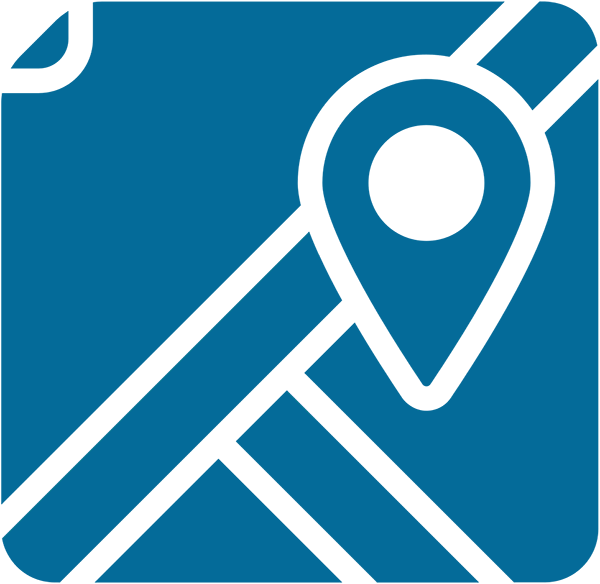The California State Library, in collaboration with Pacific Library Partnership, is now offering free access to PolicyMap as a resource for data and mapping for public library administrators and workers.
PolicyMap is available to all California public library staff as part of a statewide initiative by the California State Library and the Pacific Library Partnership to support libraries in making equity-based, data-driven decisions for community impact. Request your account today!
Recorded Training Sessions

Introduction to PolicyMap for California Public Libraries
View recording of Introductory Session
This session reviews the basic user interface, including searching for locations, loading datasets, saving, and printing. In addition, learn about creating custom boundaries, editing ranges, customizing colors, and highlighting specific datasets.
PolicyMap for Libraries: Mapping, Data, and Community Impact
View recording of PolicyMap for Libraries: Mapping, Data, and Community Impact
In this session, learn how to use PolicyMap to develop a better understanding of the community within your library district by generating a community profile report for library jurisdiction or branches, customizing data layers to better visualize key differences between neighborhoods, and saving and sharing your maps.
Attendees will learn to integrate aspects like digital equity using FCC Broadband data for better access to digital resources and library-school partnerships by accessing education data and indicators from the Census ACS related to Disconnected Youth. These indicators can be viewed with other datasets available in the PolicyMap library, such as predominant race or ethnicity, unemployment data, or specific chronic health conditions.
Empowering California Libraries: Strategies for Strengthening Support for Children, Youth, and Families through SDOH Insights
Uncover innovative strategies for enhancing support for your library district’s children, youth, and families. Learn how to create comprehensive visualizations that pinpoint neighborhoods within your library district requiring additional resources using multi-layer maps. Gain insights into areas where interventions can make a meaningful impact on the lives of children, youth, and families. Identify partners and stakeholders to help allocate resources effectively. Learn how to locate Farmers’ Markets, locations accepting SNAP, and Community Health Centers and layer with data related to fruit and vegetable consumption, obesity rates, or physical activity.
The session will touch upon social determinants of health data and how they can shape your library’s impact. Learn how to download critical health data specific to the branches within your library district. Datasets such as access to affordable housing, flood risk, and lead exposure risks will be highlighted. The newly curated Social Determinants of Health Menu will be introduced.
Harnessing PolicyMap for Community Storytelling
View Recording of Harnessing PolicyMap for Community Storytelling in California Public Libraries
Learn how to leverage PolicyMap for impactful community storytelling.
- Showcase Library Services: Map internet and computer access, broadband availability, available speeds, and the number of providers to inform the provision of Wi-Fi hotspots, tutoring programs, bookmobile stops, and reading initiatives.
- Celebrate Community Diversity & Map Cultural Assets: Create maps showcasing the foreign-born population, predominant race/ethnicity, and languages spoken in your service area. Map library locations, park access, educational institutions, colleges, and nonprofits.
- Map Local Health Trends & Highlight Food Insecurity: Develop health-focused programs by mapping rates of specific chronic conditions and access to health centers. Map instances of poverty and overlay data with community health centers, SNAP retail locations, and social services to highlight service gaps and the need for additional support. Visualize the need for new grocery stores or farmers’ markets by mapping areas with limited supermarket access, income levels, and public transportation routes.
- Enhance Civic Engagement: Use the PolicyMap data loader to view voter registration locations and polling places. Overlay demographic data about areas with a growing population, particularly those with a higher density of people of voting age, multi-family housing, new building permits, or significant household turnover. Identify areas with households without access to a vehicle or public transit.
Using PolicyMap to Empower Rural California
View Recording of Using PolicyMap to Empower Rural California
Explore demographic, environmental, and health related data to understand the unique challenges and opportunities within rural areas of California. Learn how to use PolicyMap to identify rural/isolated communities within your service areas that might be in need of Wi-Fi hotspots, book mobiles, or other library services. Learn how to use PolicyMap’s Multilayer Maps feature to combine indicators such as population density, transportation, internet access, and employment to create compelling maps that highlight underserved rural communities.
This will be a valuable session for those who are both new to PolicyMap and experienced with the tool, as we will cover some basic topics such as boundaries, base map customization, and exporting maps, as well as some more advanced topics like how to customize and download data.
Additional Resources
- Ensuring Library Direction is Consistent with Community Needs: CALL blog post introducing the power of PolicyMap.
- Exploring Beyond Census Data. Learn more about additional sources for deeper community analysis. Although Census data is vital, there’s a universe of information available. (PolicyMap blog post)
- PolicyMap support page
- PolicyMap Training Calendar Publicly available training

